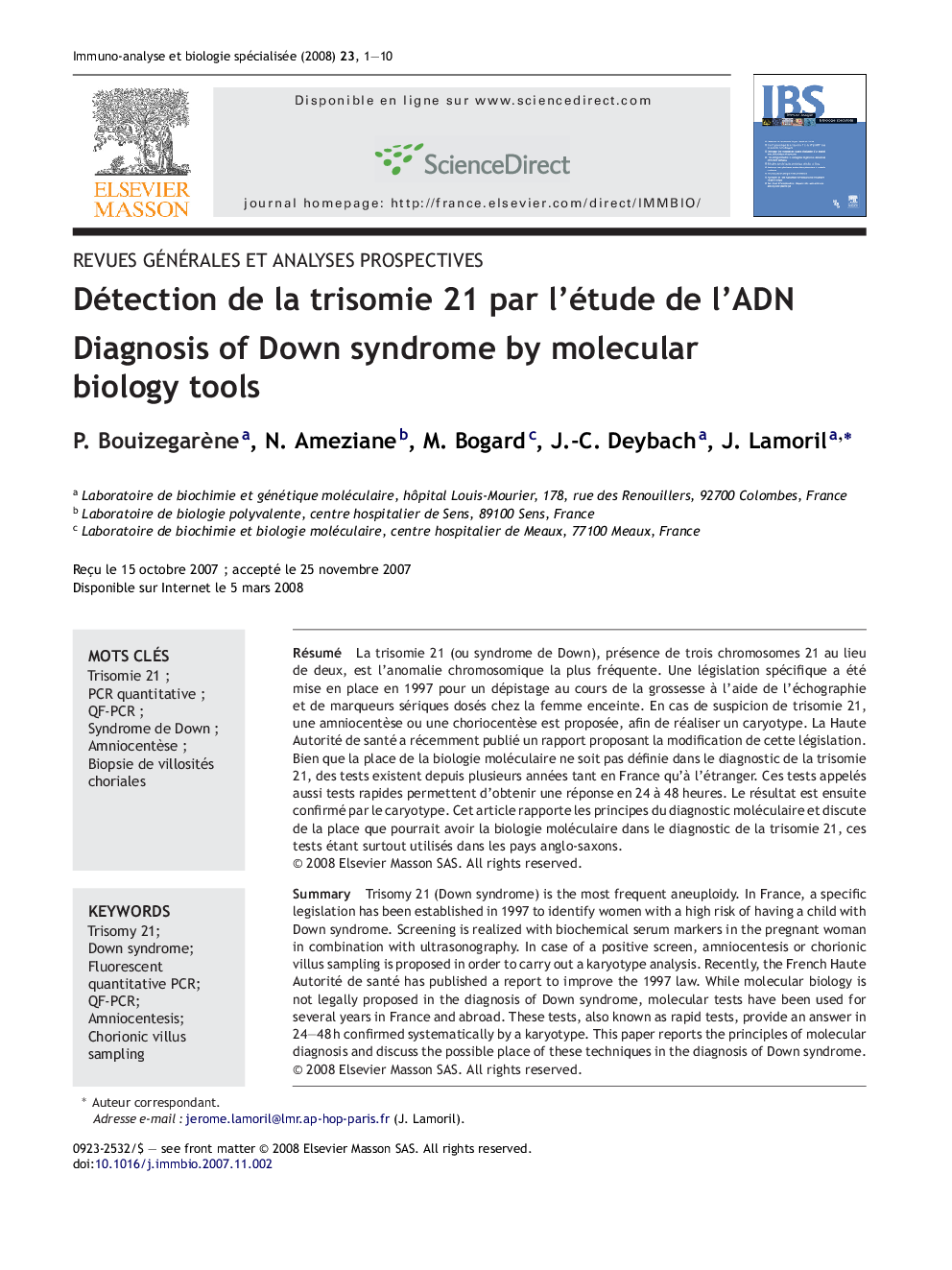| Article ID | Journal | Published Year | Pages | File Type |
|---|---|---|---|---|
| 8471782 | Immuno-analyse & Biologie Spécialisée | 2008 | 10 Pages |
Abstract
Trisomy 21 (Down syndrome) is the most frequent aneuploidy. In France, a specific legislation has been established in 1997 to identify women with a high risk of having a child with Down syndrome. Screening is realized with biochemical serum markers in the pregnant woman in combination with ultrasonography. In case of a positive screen, amniocentesis or chorionic villus sampling is proposed in order to carry out a karyotype analysis. Recently, the French Haute Autorité de santé has published a report to improve the 1997 law. While molecular biology is not legally proposed in the diagnosis of Down syndrome, molecular tests have been used for several years in France and abroad. These tests, also known as rapid tests, provide an answer in 24-48Â h confirmed systematically by a karyotype. This paper reports the principles of molecular diagnosis and discuss the possible place of these techniques in the diagnosis of Down syndrome.
Keywords
Related Topics
Life Sciences
Biochemistry, Genetics and Molecular Biology
Cell Biology
Authors
P. Bouizegarène, N. Ameziane, M. Bogard, J.-C. Deybach, J. Lamoril,
